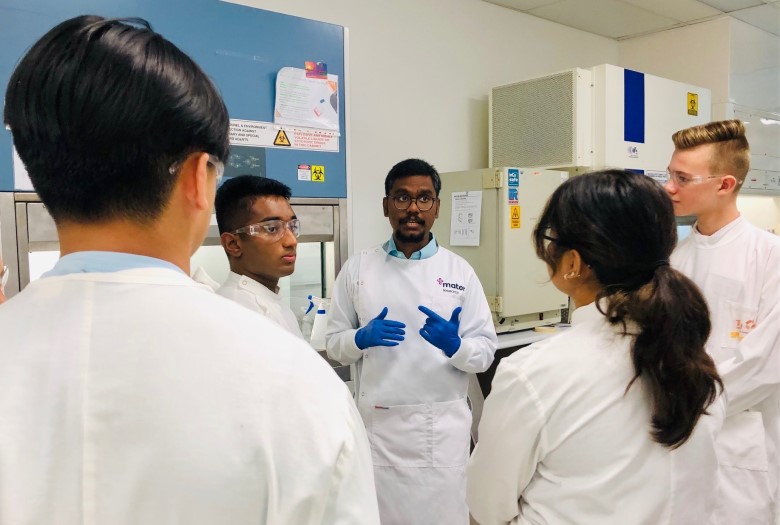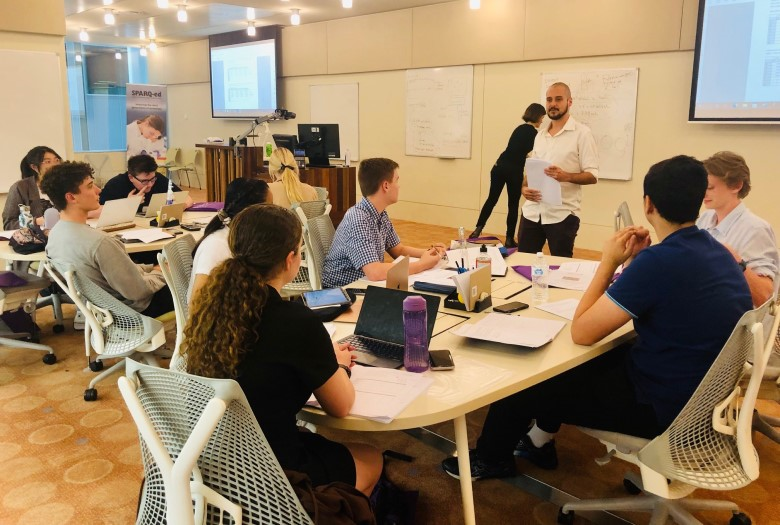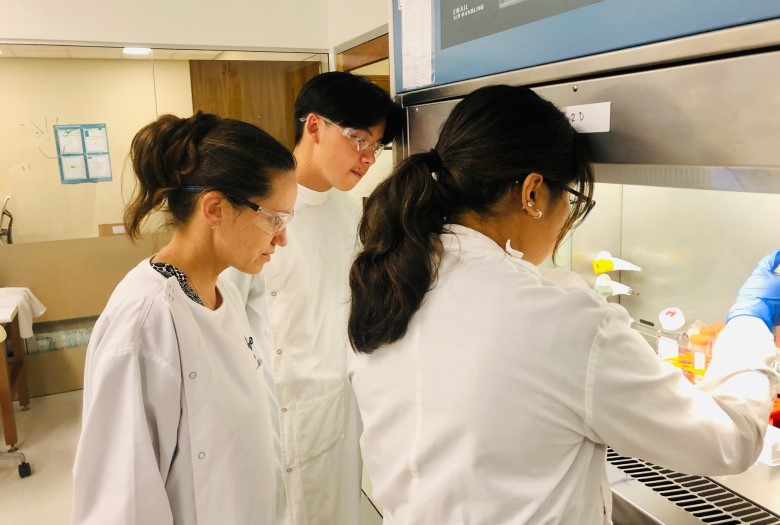PhD candidates Jesse Masson, Selwin Samuel and Svetlana Shatunova have been diving in deep to their doctorates this year, but they have recently enjoyed a different kind of immersive experience with an altogether different group of students.
The three PhD candidates, who are completing their respective dissertations on interactions of the human immune system and infectious disease, have led a hands-on learning experience for a select group of Queensland high-school students to give them an insight into higher education and graduate work.
The SPARQ-ed (Students performing advanced research in Queensland) program is an initiative of the Translational Research Institute (TRI) of which Mater Research is a founding partner.
The program is open to Queensland high school students who show an interest in biomedical research with several immersion opportunities offered each year.
Most of the 13 students who attended the latest immersion on the immune system and infection came from regional parts of the state, including Atherton in far north Queensland, Mackay, Bundaberg, Hervey Bay, the Gold Coast and Brisbane.

Selwin Samuel from Jean-Pierre Levesque’s Research Group said their project specifically focused on bacterial infection and how the immune system responds to those infections.
“There’s a need for more research in the field of infection biology. As growing scientists, ourselves, we want to encourage the budding future scientists to learn more about infectious diseases and how they affect the immune system,” Selwin said.
“This has been a really great experience for us, to be able to design and deliver the lessons and see the high school students engage.”
Jesse Masson from David Hume and Kate Irvine’s Research Group said he enjoyed interacting with the high school students during the five-day program.
“Being a part of SPARQ-ed is a wonderful opportunity to tutor school kids,” he said.
“It not only helps them learn new things, it helps us to become better researchers as well, and that’s why we are here. Promoting what we do at Mater Research and UQ to a younger generation of students supports science communication and health in the community in the long run.”

Being given the opportunity to talk about her own work and develop a rapport with the students has been rewarding for Svetlana Shatunova from Ingrid Winkler’s Research Group.
“We’ve been working with the immune system during our time as PhD students, and have found how important it is to disseminate current information related to infectious disease as a means of preventing poor health outcomes. Raising awareness of our work with these students shows the good that science can do and how the population of Australia can benefit.”

The immersion program was very well received by the high school students who showed up eager to learn each day, including Year 11 Gold Coast-based student Samuel Brown.
“I think it’s a wonderful way for high school students to engage in research that’s new and not taught in the classroom. It’s also great to meet and be mentored by researchers who are at the cutting edge of their fields.”
Bundaberg Year 11 student, Zali Haster said the SPARQ-ed program had inspired her to pursue medical research in the future.
“The tutors have all been really nice and explained things so well. I want a career in medicine, and this has been a great opportunity to learn hands on skills and made me also want to do medical research.”
Year 12 student from Brisbane, William Lumb, said he really enjoyed the SPARQ-ed immersion.
“It’s excellent and I love doing all these research projects that are new and learning new skills. It’s also really good for preparing people for a career in medical research.”
Mater Research PhD candidates and post-docs facilitated five of the six SPARQ-ed programs at TRI in 2021, with hopes to continue working with new groups of high school students in 2022.